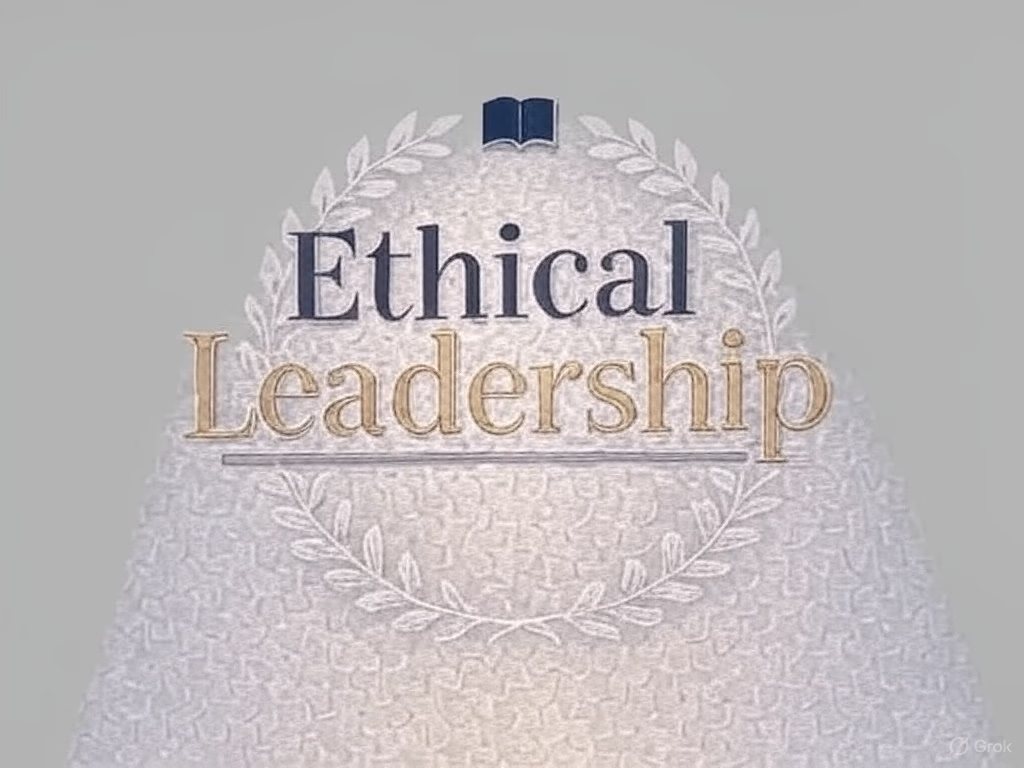Ethical leadership is more important than ever in higher education. Colleges and universities face complex challenges like declining enrollment, financial pressures, and public skepticism. Fortunately, ethical leadership provides a steady compass to navigate these storms. It shapes decisions, builds trust, and ensures institutions stay true to their mission. Let’s dive into why this approach is vital for administrators, faculty, staff, communities, and institutional reputation in today’s challenging environment.
The Challenges Facing Higher Education
To begin with, higher education is under immense pressure. Enrollment is dropping as fewer students see the value in a degree. At the same time, tuition costs are skyrocketing, raising affordability concerns. Additionally, public trust is waning due to scandals and perceptions of elitism. Technology, such as AI and online learning, is disrupting traditional models. Moreover, diversity, equity, and inclusion efforts face backlash. In this context, integrity and fairness in decision-making become essential to address these issues.
Ethical Leadership for Administrators
Shifting focus to administrators, they face tough choices in this turbulent environment. They must balance budgets while keeping education accessible. Through ethical leadership, they can make decisions that prioritize students over profits. For example, a principled leader might freeze tuition increases despite financial strain. Furthermore, they ensure transparent communication about campus challenges, like layoffs or program cuts. As a result, administrators who act with integrity build trust with stakeholders, even during crises.
Why It Matters
- Guides fair budget decisions.
- Maintains transparency in crises.
- Preserves trust with students and staff.
Ethical Leadership for Faculty
Moving on to faculty, they are on the front lines of higher education’s challenges. They teach diverse students with varying needs, often with limited resources. By practicing ethical leadership in the classroom, they can adapt to these realities fairly. For instance, a professor might offer flexible assignments for students facing financial hardships. Additionally, they navigate hot-button issues, like free speech, with respect for all views. Consequently, faculty who lead with integrity foster inclusive learning spaces despite external pressures.
Key Benefits
- Supports diverse student needs.
- Handles sensitive topics fairly.
- Builds inclusive classrooms.
Ethical Leadership for Staff
Transitioning to staff, they feel the weight of higher education’s challenges daily. Budget cuts can lead to job insecurity, and increased workloads strain morale. Through ethical leadership, staff are treated with dignity. This involves including them in decisions, such as campus safety protocols during budget constraints. Moreover, leaders who prioritize fairness advocate for proper compensation and mental health support. As a result, this approach keeps staff motivated, even in tough times.
Why It’s Important
- Boosts morale during uncertainty.
- Ensures fair treatment and inclusion.
- Maintains campus operations.
Ethical Leadership and the Community
Next, let’s consider the community. Colleges serve as anchors, but challenges like declining enrollment strain these ties. Ethical leadership strengthens community relationships by fostering meaningful engagement. For example, it means partnering with local businesses to create job pipelines for graduates or addressing concerns like environmental impacts of campus projects. By doing so, leaders who act ethically show communities that institutions care, even when facing internal pressures. This, in turn, builds goodwill and local support.
Community Benefits
- Fosters meaningful partnerships.
- Addresses local concerns.
- Strengthens community trust.
Ethical Leadership and Institutional Reputation
Shifting to institutional reputation, it’s fragile in today’s higher education landscape. Scandals, like admissions fraud or mishandling campus protests, often make headlines, while public skepticism about degree value adds pressure. Ethical leadership protects reputation by prioritizing accountability. For instance, a transparent leader might openly address a data breach and invest in cybersecurity. As a result, a strong reputation attracts students, faculty, and donors, even in a competitive market.
Reputation Boosters
- Prevents scandals through transparency.
- Maintains public trust.
- Draws talent and funding.
The Ripple Effect of Ethical Leadership
Looking at the broader impact, ethical leadership creates stability in turbulent times. When administrators act with integrity, faculty and staff feel supported, creating a positive chain reaction. Students learn from these examples and carry principled values forward into their own lives. Meanwhile, communities rally behind trustworthy institutions. Ultimately, this approach builds a culture of resilience, helping colleges weather challenges like funding cuts or shifting demographics.
Navigating Ethical Challenges Today
However, ethical leadership can be tough in today’s environment. Leaders face conflicting demands, such as cutting costs while maintaining quality, and they may encounter political pressures over curriculum or campus policies. Staying principled requires courage and a commitment to resisting quick fixes that compromise values. For example, a leader might reject predatory recruitment tactics, even if enrollment is declining. To support this, training and clear policies help leaders stay grounded.
Fostering Ethical Leadership Now
So, how can colleges cultivate ethical leadership to face today’s challenges? First, they should hire leaders with proven integrity. Next, they can offer training on navigating dilemmas, like balancing free speech and inclusion. Additionally, creating transparent policies on issues like financial aid or protest management is key. Finally, encouraging open dialogue ensures concerns can be raised safely. These steps help this approach thrive, even under pressure.
Action Steps
- Recruit principled leaders.
- Provide targeted training.
- Promote transparency and dialogue.
The Future of Ethical Leadership
Looking ahead, higher education’s challenges aren’t going away. Issues like affordability, technology, and public trust will remain hot topics. Ethical leadership is the key to staying relevant in this landscape. Leaders must listen to students, adapt to new technologies, and address societal concerns like climate change. By prioritizing this approach, colleges can rebuild trust and prove their value in a skeptical world.
Conclusion
In summary, ethical leadership is a lifeline for higher education today. It guides administrators through financial and political pressures, empowers faculty to teach inclusively, and supports staff during uncertainty. Furthermore, it strengthens community ties and protects reputations. Despite the challenges, this approach builds trust and resilience. By investing in ethical leadership, colleges can navigate today’s storms and emerge stronger, inspiring students to lead with integrity in a complex world.
For more information, contact Dr. Theresa Billiot or connect with her on LinkedIn.


Comments are closed